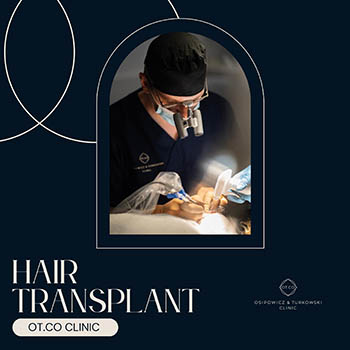TL;DR:
- Hormones: Hair loss can result from hormonal imbalances like high androgens (linked to PCOS), thyroid issues, or menopause. It may occur post-pregnancy or after stopping birth control pills.
- Genes: Androgenetic alopecia can affect women, showing thinning in the parting area. Hair transplants (e.g., FUE) may be the only solution for genetic hair loss.
- Diseases: Autoimmune (lupus, psoriasis), metabolic (diabetes, anemia), or infectious diseases (e.g., high-fever illnesses) can cause hair loss.
- Medications: Hair loss may result from chemo/radiotherapy, anticoagulants, beta-blockers, or immunosuppressants; consult a doctor for alternatives.
- Dietary Deficiencies: Lack of protein, iron, or zinc from poor diets can lead to thinning; supplements and a better diet help.
- Stress: Chronic stress increases cortisol levels, speeding hair loss; stress-relief or treatments (mesotherapy, transplants) are options.
Baldness is more common in men, but that doesn't mean it doesn't occur in women at all. It happens that ladies also lose their hair excessively, which does not always thicken again, so if your hair has been thinning for a long time, it is worth going to a specialist for a consultation. There can be many causes of baldness: what are the most common ones?
Cause 1: Hormones
Not without reason, excessive hair loss, is often considered a sign of hormonal problems. In the case of baldness, not only a trichologist can help, but also a gynecologist in Warsaw. Male pattern baldness is one of the symptoms of too high androgen levels. In addition, problems such as hirsutism, menstrual and fertility disorders and acne occur. If such problems are present, a gynecologist may diagnose PCOS, or polycystic ovary syndrome. Other hormonal disorders, such as hypothyroidism or hyperthyroidism or Hashimoto's disease, can also lead to hair loss. Hair loss also often occurs with estrogen-related disorders: baldness occurs after pregnancy, discontinuation of birth control pills or during menopause.
Cause 2: Genes.
One of the most common problems is androgenetic alopecia, which can also occur in women. Hair follicles are then overly sensitive to androgens, leading to hair loss. In men, there are usually distinctive hair curves and gaps on the top of the head. If the problem is due to genetic factors, the only effective solution is FUE hair transplant. In women, androgenetic alopecia looks different: the hair thins in the parting area, becoming thinner over time, but usually no areas completely devoid of hair appear.
Cause 3 Diseases.
In addition to the hormonal problems mentioned, there are other diseases that can cause excessive hair loss. These usually involve autoimmune diseases such as lupus, rheumatoid arthritis, sarcoidosis or psoriasis. Characteristic for lupus erythematosus is scarring alopecia, which means that hair that has fallen out will no longer grow back – the solution here is hair transplantation in women. In addition, baldness can also be caused by diabetes and liver disease. Possible causes also include ringworm of the scalp and seborrheic dermatitis. Hair loss sometimes results from infectious diseases, especially those running with a high fever, such as influenza or pneumonia. One of the most common causes is anemia, from which even ⅓ of adult women suffer. So if problems such as weakness, chronic fatigue, pale skin, irregular heartbeat, tinnitus, headaches or hypersensitivity to cold occur, it is worth seeing a doctor.
Cause 4 Medications
Drug-induced hair loss is also a common problem. The most serious example of this is baldness in cancer patients who are undergoing radio or chemotherapy. Chemotherapy leads to hair loss because it affects the entire body. Radiation therapy causes baldness if the upper part of the body is irradiated. However, drug-induced hair loss can also occur as a result of less radical therapies. Quite often they are caused by, among other things:
- Anticoagulants (e.g., heparin),
- Anticonvulsant drugs,
- Immunosuppressive drugs,
- Beta-blockers (mainly used to treat coronary artery disease, heart failure or hypertension),
- Lipid-lowering drugs (taken for atherosclerosis, too high blood cholesterol levels).
Baldness, of course, does not occur in every person taking these medications, but if it does, it is worth investing in treatments to nourish and strengthen hair (such as mesotherapy), and if the problem is severe, talk to your doctor about changing medications.
Cause 5: Dietary deficiencies.
Nutritional deficiencies can also lead to thinning hair. An overly radical diet or reliance mainly on processed foods can lead to deficiencies in protein, iron or zinc. To solve the cause and not just fight the effects, it's a good idea to correct the deficiencies in the first place. On an ad hoc basis, you can support yourself with supplements or medications prescribed by your doctor after confirming the deficiencies, but in the long run, it's worth working on your daily diet.
Cause 6: Stress.
Strong emotional experiences or chronic stress can also lead to excessive hair loss. Such a mechanism does not occur in everyone, but if you have a genetic tendency to baldness, high levels of cortisol, also known as the stress hormone, accelerate and exacerbate hair loss problems. Baldness, like most aesthetic problems, only seemingly has no serious consequences, as it can lead to complexes, loss of confidence and feeling bad about your own body. Fortunately, there are methods available to deal with this problem, such as: scalp carboxytherapy, Dr. Cyj Hair Filler or XL Hair mesotherapy. In the most severe cases, a hair transplant is the solution. You don't have to accept the complexes associated with baldness, this problem really can be solved.
Conclusion
Hair loss has many causes—hormones, genetics, illnesses, medications, diet, and stress. Each factor deserves attention, as ignoring symptoms often worsens the issue. Treatments and solutions, like mesotherapy or transplants, can help restore confidence and health. Don’t delay; understanding the root cause unlocks the path to effective care. Act now to regain control over your hair and well-being.






